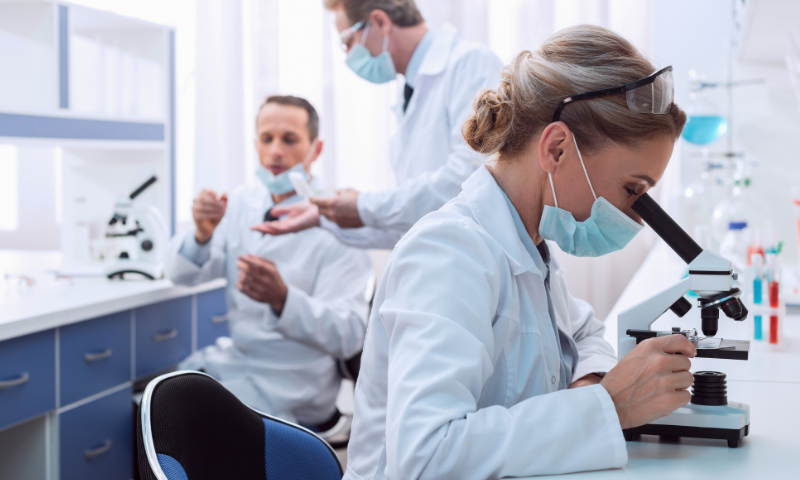Scientists at the University of Glasgow are to receive £1.7 million from Cancer Research UK as part of their ongoing investigations into the root causes of cancer and how traditional treatments can be advanced.
Professor Stephen Tait, of the Cancer Research UK Beatson Institute and the Glasgow University School of Cancer Sciences, will receive £1,646,832 to explore in more depth what causes cancer cells to grow and form tumours.
In addition, Dr Conchita Vens, based at the Wolfson Wohl Cancer Centre, will be given £99,000 to explore new strategies on how to overcome cancers which are more resistant to radiotherapy.
Professor Tait’s research will focus on how cancer cells can “cheat death” by getting around the “kill switch” mechanism. Discovery of the mechanism, said to be a powerful way to stop tumours from growing, has sparked the development of a new class of anti-cancer drugs, but some research indicates that the mechanism can help cancer grow if it is not fully activated or if the cancer cells find a way to tell nearby cells to keep growing, thus risking reduction in effectiveness for cancer treatments.
Professor Tait is to explore this possibility further in the lab to see how pancreatic and bowel cancer cells survive activation of the “kill switch” mechanism, and explore a new method for removal of surviving cancer cells.
Meanwhile, Dr Conchita Vens’ research will centre around glioblastoma, an aggressing form of cancer occurring mainly in the brain which is challenging to treat.
Dr Vens’ team will collaborate with Professor Anthony Chalmers to explore PARP inhibitors, a type of drug which stops cancer cells from repairing damage to their DNA caused by radiotherapy.
Prior research has suggested that low levels of oxygen in brain tumours can stop radiotherapy or drugs like PARP inhibitors from working well, so the team are to test the effectiveness of combining radiotherapy with PARP inhibitors and drugs that can reverse low oxygen. If successful, it is hoped that new drug combinations will be tested in clinical trials with the overall aim of improving glioblastoma treatment.
Dr Vens’ team will also collaborate with experts in Oxford and Manchester to combine expertise and resources as part of the push to develop new treatments and provide better outcomes for cancer patients.



